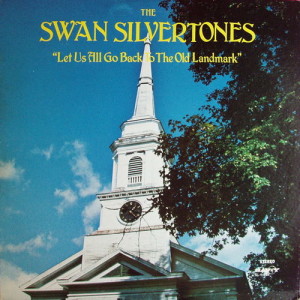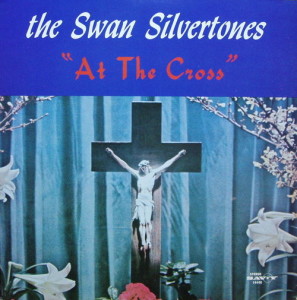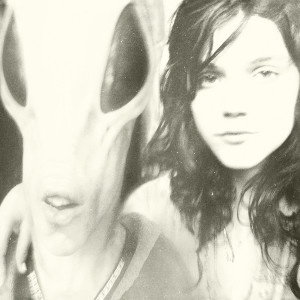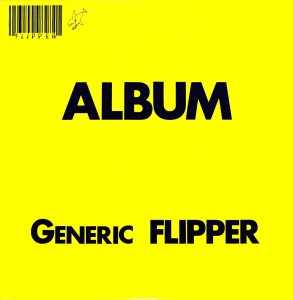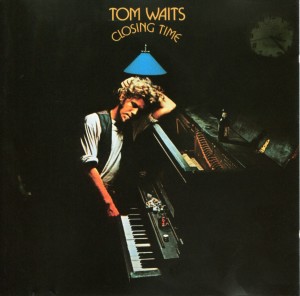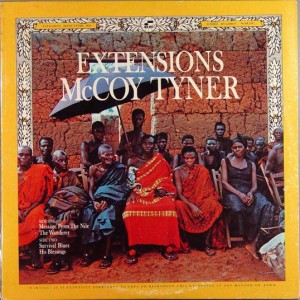Link to an article by Barbara Ehrenreich:
Month: December 2015
The Swan Silvertones – The Very Best of The Swan Silvertones: Do You Believe
The Swan Silvertones – The Very Best of The Swan Silvertones: Do You Believe Collectables 6111 (1998)
An inappropriately titled collection, given that this is by no means even meant to be a selection of the “very best” material recorded by The Swan Silvertones. It actually is a reissue of It’s a Miracle (tracks 1-10) with two bonus tracks (11 and 12) from another (live) album added. In that sense, people unfamiliar with the group looking for an broad introduction should steer clear of this. Though there is no indication in the liner notes as to where any of this material originated, so naturally approaching this properly would be confusing. Most confusingly, songs are renamed here compared to their original names, for no good reason. The liner notes provide a history of the group, discussing the great Claude Jeter while failing to mention that he’s not featured here at all. As for the music itself, things lean toward soul and even blues-rock in sound at times. The last two tracks are live recordings from Walk With Me Lord. Of those live tracks, “I Gave My Heart to the Lord” (better known to Swan Silvertones fans as “What About You”) is a bit too muddy in the recording to get excited about it, while “Walk With Jesus” is interesting in how its crazy, out of step guitar and piano pull you in and push you away at the same time.
The Swan Silvertones – Let Us All Go Back to the Old Landmark
The Swan Silvertones – Let Us All Go Back to the Old Landmark Savoy SL-14524 (1979)
An album with a funky R&B sound. To my ears, some of this is reminiscent of Luther Vandross or other popular R&B and contemporary gospel of the day. Some decent songs on side one, particularly “God Has Smiled on Me”, “Trying to Get Home” and the title track, but generally nothing else too memorable. On the whole, unessential, but relatively speaking one of the group’s better albums for Savoy.
The Swan Silvertones – At the Cross
The Swan Silvertones – At the Cross Savoy 14440 (1977)
The Swan Silvertones’ debut album for Savoy Records At the Cross marked a transition to their autumn years. The music carries forward elements of the sound of their tenure on HOB Records from a few years earlier, but also pushes to modernize the group’s sound at the same time. This makes the group’s style troublesome, often tending toward the cartoonish. It’s all too obvious they are trying hard to sound relevant to contemporary tastes, rather than just following their own muse. One of the lesser Swan Silvertones albums.
SoKo – I Thought I Was an Alien
SoKo – I Thought I Was an Alien Because Music BEC 5161067 (2012)
A respectable collection of twee chamber folk music. Though at times this threatens to overplay the sheer preciousness, particularly with the vocals that sound almost like Björk but without the same lurking shrewdness, because the best moments are when this breaks out of the almost timid yet clever self-reflection with bursts of almost incongruous gregariousness. Shows much promise.
Linda Gordon – The Programs of Neoliberal Feminism
Link to an article by Linda Gordon:
Flipper – Album: Generic Flipper
Flipper – Album: Generic Flipper Subterranean SUB 25 (1982)
“Ever look at a flower and hate it?” (“Ever”)
Well, ever hear an album and instantly love it?
Flipper grew out of the remnants of the punk scene. They formed in San Francisco. Not exactly the epicenter of punk, but their distance from the leading proponents of that movement probably helped them forge their own unique sound. Most Flipper tracks follow a similar format, with guitarist Ted Falconi scratching out abrasive, atonal guitar noise and one of the bass players (Will Shatter and Bruce Lose [AKA Bruce Loose] — they alternated singing and playing bass) carrying what passes for a melody. The singing sort of creates its own melody, not always in sync with the bass line melodies, and not really “sung” either, so much as shouted and groaned in almost a monotone. The drums (Steve DePace) thud along in a kind of plodding way, lo-fi and sort of distant and sometimes with added echo effect, yet also deceptively varied compared to most punk and hardcore of the day. This was an early form of “sludge rock”, taken up later by bands like Black Flag (My War) and The Melvins. The sound is very heavy. As confrontational as the band was, and as much as they are totally incompatible with being part of some sort of upper crust of society, their driving, powerful sound doesn’t reveal any guilt about acting like they fucking own the world as much as anyone else.
“Life” has the brilliant lyrics “life, life, life is the only thing worth living for.” This empty turn of phrase utterly robs desire of all its power, in a wonderful way. Basically, by excluding all other things as being “worth living for,” it relegates all other worldly desires to the status of worthless shit. This is basically what psychoanalysis says too, incidentally. What is left, is just life itself. You either find a way to make that worth it, or not. Flipper turn this into an anthem! The chord progression on the song is indeed one of the few on the entire album that has any sort of ascending, happy-sounding resolution.
“Who needs cancer, it’s boring” (“Living for the Depression”) Well, if that line doesn’t do it for you, the band conveniently lets you know that “this song rhymes.” But they also call out the listener, ending the song by shouting about “a real cheap fucker like you, copout!”
This is an album of solidarity. Either you appreciate the band avoiding what most people would find enjoyable, hell, acceptable, only the most like-minded remain. Well, there is plenty to love here. A big reason a lot of people loved (and still love) Flipper is that they had the guts to actually go out and make music like this.
The “hit” was “Sex Bomb.” Here’s a song that has probably the most degenerate horn section around (actually just two saxophonists). Like string orchestration, horns are kind of a capital-intensive way to make music. To set one against some guys in a degenerate rock band yelling nothing but “Sex bomb, my baby, yeah!” for minutes on end is a daring way to defile everything that such elements usually mean. This takes the sort of tools of the powerful and makes them crass, ugly and unsuitable. This is a glorious musical revolution (of “kynicism“). The was a time, just before the Great Depression, when around the world musicians were doing this sort of stuff (chronicled in Michael Denning‘s book Noise Uprising). It is also a bit like industrial rockers Rammstein would do with fascist iconography years later, because it reduces capital-intensive musical accoutrements to simple pleasures that are put in the service of something else, that here at least seems deeper.
Andrew Gavin Marshall – Bank Crimes Pay
Link to an article by Andrew Gavin Marshall:
“Bank Crimes Pay: Under the Thumb of the Global Financial Mafiocracy”
Tom Waits – Closing Time
Tom Waits – Closing Time Asylum SD 5061 (1973)
Tom Waits’ debut went in a direction he never really revisited. Only “Midnight Lullaby” points to what he would do on his next few albums, though the style is not yet fully formed. People look to “Ol’ 55” as one of his better songs, but I find it a bit ho-hum. It leans a bit too much on the prevailing “California soft rock” fad, which was in full swing at the time. That sort of sums this up. The album doesn’t always play on Waits’ strengths. So it could be said he was still finding his voice. But this album still has some charm. “Old Shoes (& Picture Postcards)” is among my favorite Waits songs — usually my only reason for returning to Closing Time.
McCoy Tyner – Extensions
McCoy Tyner – Extensions BN-LA 006-F (1973)
A lot like Alice Coltrane of the period, though a bit more…calculated. And guess what? Alice is here!


